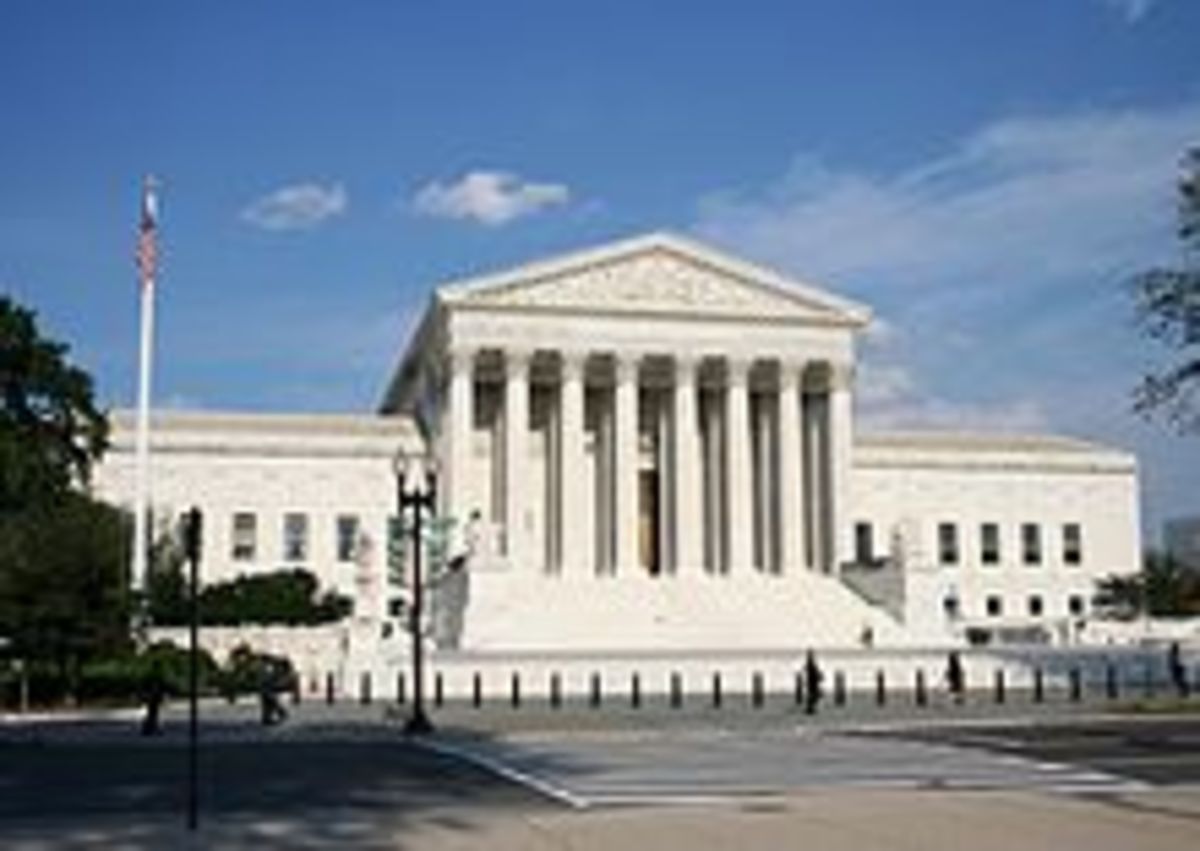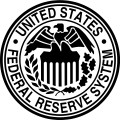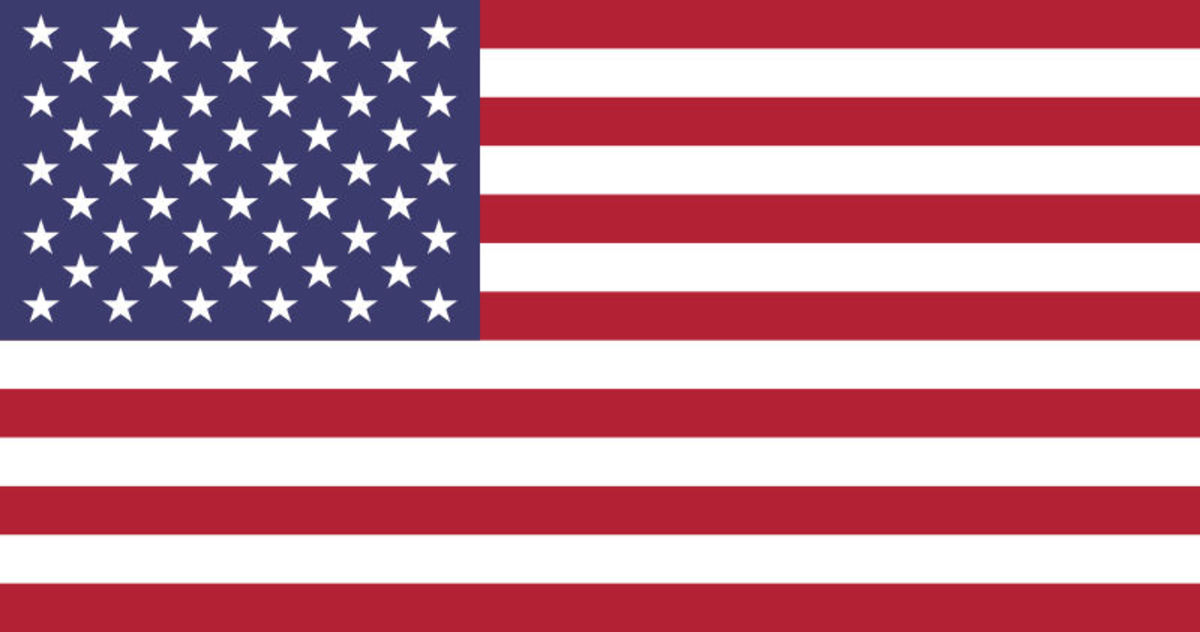Conservative Judicial Restraint-Reality or Myth?
The Senate confirmation process for Supreme Court justice nominee Elena Kagan is well under way. The battle regarding how to interpret the United States Constitution is predictably in high gear. Most Democrats and liberal minded people are generally believed to have a view that the Constitution should be interpreted in an expansive manner to suit a changing country. Conversely, most Republicans and conservative minded people are believed to have a view that the Constitution should be interpreted strictly the way it was written.
My belief is that both sides have a rather elastic view of the Constitution. The conservatives don't see their views in this manner. The extent of their elasticity usually depends on the issue involved and how their view of that issue is best served. I will attempt to show with various examples how those who advocate judicial restraint, also known as strict constructionism, are not truly narrow interpreters of the U.S. Constitution.
The first and main area of the U.S. Constitution that allows for an elasticity in constitutional interpretation is the 9th amendment. This amendment is the one used as a basis for privacy rights. The most famous and controversial of the cases determined under this amendment is Roe v. Wade which allows a woman the choice of taking her embryo to full term or aborting it. This amendment states, and I quote, "The enumeration in the Constitution , of certain rights, shall not be construed to deny or disparage others retained by the people". The founding fathers knew that they had only touched on the most basic rights that they felt important at that time. With this amendment, they gave voice to the belief that times and views change. Therefore future Justices could protect other rights not listed in the original Bill of Rights if they judged it necessary.
The 9th amendment inbedded elasticity into the Constitution. It is true that passing constitutional amendments are an important way to also accomplish this. But the signers of the Constitution recognized that this would be a long and tedious process. They wrote this amendment to remedy essential and immediate injustices. I believe this was wise and it is an important basis for the counter argument to strict constructionism.
Next I would like to examine the classic debate between advocates for states rights and advocates for federal powers. Strict constructionists refer to Amendment 10 in this matter. This amendment reads as follows, "The powers not delegated to the United States by the Constitution nor prohibited by it to the States, are reserved to the States respectively, or to the people". Southern conservatives have argued all the way back to the slavery era that state laws are supreme on both the question of slavery and on how to treat black Americans subsequent to Reconstruction. They even resorted to seceding from the Union sparking the Civil War on this basis. Later the creation and defense of the Jim Crow laws were justified by way of the states rights argument. These laws segregated black Americans from white Americans. The 1896 Plessy v. Ferguson ruling upheld the constitutionality of segregated accommodations as long as they were separate but equal. The Supreme Court struck the first blow against these Jim Crow laws with the famous 1954 Brown v. the Board of Education of Topeka, Kansas decision. This ruling found that historically, schools that were segregated were and had never been equal anywhere in the United States. Therefore they ruled that segregated schools were unconstitutional.
The states rights argument has been used on many other issues such as gay rights, abortion, and others. Yet they go against this doctrine when it is convenient to their cause. The most prominent example is Bush v. Gore. Article 2, Section 1 of the Constitution gives the states the power to decide how to run their elections for U.S. Presidential electors. The Florida Supreme Court ordered a re-count of Florida's 2000 presidential vote due to discrepancies with their ballots in this election. The U.S. Supreme Court overruled them strictly along ideological and party lines. So much for the sanctity of states rights. During the Teri Schiavo feeding tube removal case, the Republican Congress passed legislation to move this case to the federal courts. This was after the Florida Supreme Court refused to rule for Teri's parents over her husband. The Florida court upheld the husband's right to pull Teri's feeding tube due to her vegetative state. Her parents were against this. The U.S. Court of Appeals and the U.S. Supreme Court refused to hear the case on the grounds that it was a state matter. Just another example of intellectual inconsistency on the part of the strict constructionists.
A final area exposing chinks in the strict constructionists' armor are in how they deal with the essential freedoms in the Bill of Rights amendments 1 through 6. Let's first examine their 2nd Amendment argument on the right to bear arms. Conservatives fight tooth and nail at any restrictions placed upon gun ownership and usage that legislatures might place upon them. These include banning assault rifles, requiring background checks, and any common sense precautionary restrictions. Yet they are not so strict when it comes to defending other Bill of Rights amendments.
Separation of church and state is a hallmark of the Constitution. But conservatives often espouse policies such as school prayer and teaching religion in the public schools as a counterargument to the Theory of Evolution and the Big Bang Theory which are scientific theories. The conservatives also have no problem showing their elasticity with freedom of speech. Banning flag burning was a major project for them. The Supreme Court ruled that flag burning was allowed because it was a form of speech and therefore protected no matter how heinous flag burning appeared to be. This still did not stop conservatives. They continued to push this issue with a proposal for a constitutional amendment. This action went absolutely nowhere except to extend this matter as a political issue.
Finally, strict constructionists have showed no trouble bending Amendments 5 and 6 with regard to the Guantanamo Bay detainees and other terror suspects. These amendments state that no one should be held and denied their liberty without a speedy trial except in times of war or public danger. The public danger argument could certainly be argued for directly after the 9/11 terror attacks when uncertainty reigned supreme. But indefinite detainments without trial after extensive time has passed is totally unreasonable. There is always danger. But this exception was meant for immediate danger. The Patriot Act is another example where conservatives have stretched the elasticity of the Constitution in response to 9/11. Unfortunately it has also lessened many of the privacy rights of U.S. citizens because of warrantless searches and wiretaps.
In a few days the U.S, Senate will be voting on Elena Kagan's confirmation to the U.S. Supreme Court. Very few conservative Republican votes will be cast to confirm her. Most of the explanations for the nay votes will be on strict constructionist grounds. This is an unfortunate and growing trend. Justices Antonin Scalia and Ruth Bader Ginsburg were overwhelmingly confirmed in past decades and they were very conservative and very liberal respectively. This illustrates my point that this process has become absurdly political and ideological.
The Senate has a very important responsibility to examine these nominees because they are lifetime appointments. It is also important to have an honest examination of how a nominee will interpret the U.S. Constitution. Senators and all politicians should examine their own views and be honest in regards to what ideologies and opinions they really want from Supreme Court justices. The Constitution clearly allows for elasticity to deal with new issues and rights that the founding fathers never envisioned. Liberals recognize and affirm this. Conservatives deny this yet argue many cases on elastic constitutional grounds.
We are watching this play out again with the Arizona immigration law. Controlling the United States borders, immigration, and citizenship is clearly a Federal power under the U.S. Constitution. But conservatives are once again stretching the Constitution to fit their viewpoint and further their political fortunes. This law requires Arizona police officers to enforce immigration law. Arizona has no power to do this under the Constitution . This is just another example of judicial restraint being thrown out the window when it suits the conservatives. It is further proof to help answer the title of this article. Conservative judicial restraint is clearly a myth.



![The Fallout From the Conservative Assault on the Right to Privacy and the Supreme Court's Lurch back to 1820 [Updated] The Fallout From the Conservative Assault on the Right to Privacy and the Supreme Court's Lurch back to 1820 [Updated]](https://images.saymedia-content.com/.image/t_share/MTkxMTU1MjUyMDYwMjM1NTM5/the-fallout-from-the-conservative-assault-on-the-right-to-privacy-and-the-supreme-courts-lurch-back-to-1820.jpg)




